
Week's balance: Attack on Gazprom, Vovk's lay-off, and premier's war with finance minister
Naftogaz began the process of forcing a US$2.6 bln debt from Gazprom in Europe, targeting Putin's favorite Nord Stream 2; squabbles between Prime Minister Volodymyr Groysman and Finance Minister Oleksandr Danyliuk hit an international level, while President Petro Poroshenko finally approved five new members of the energy regulator and dismissed its scandalous head, Dmytro Vovk – these are the main economic news of the outgoing week.
This week was full of significant economic events. One of the highest-profile news was the decision of the supervisory board of the national joint-stock company Naftogaz of Ukraine to pay 41 employees sky-high bonuses worth $46.3 million for the victory in the Stockholm Arbitration Court in a gas transit dispute with the Russian energy monopoly, Gazprom.
In May alone, company executives will be paid some $20.7 million in bonuses. The rest of the company's staff will receive their bonuses within three years only if the $2.6 bln debt is successfully recovered.
Apparently, the company management is fully determined to receive the full amount of their bonuses. In the past week, Naftogaz started the process of forcing a debt (plus a penalty of $45 million) from Gazprom in foreign courts in pursuance of the decision of the Stockholm Arbitration. Corresponding procedures started in UK, Switzerland and the Netherlands.
"The process of forced recovery has moved to a practical plane. Literally today we started encumbering the shares and other assets of Gazprom," Naftogaz CEO Andriy Kobolyev said during a meeting with President Petro Poroshenko.
The most interesting is that Naftogaz laid eyes on the shares of Nord Stream AG and Nord Stream 2 AG, the operators of the Nord Stream and Nord Stream 2 gas pipelines.
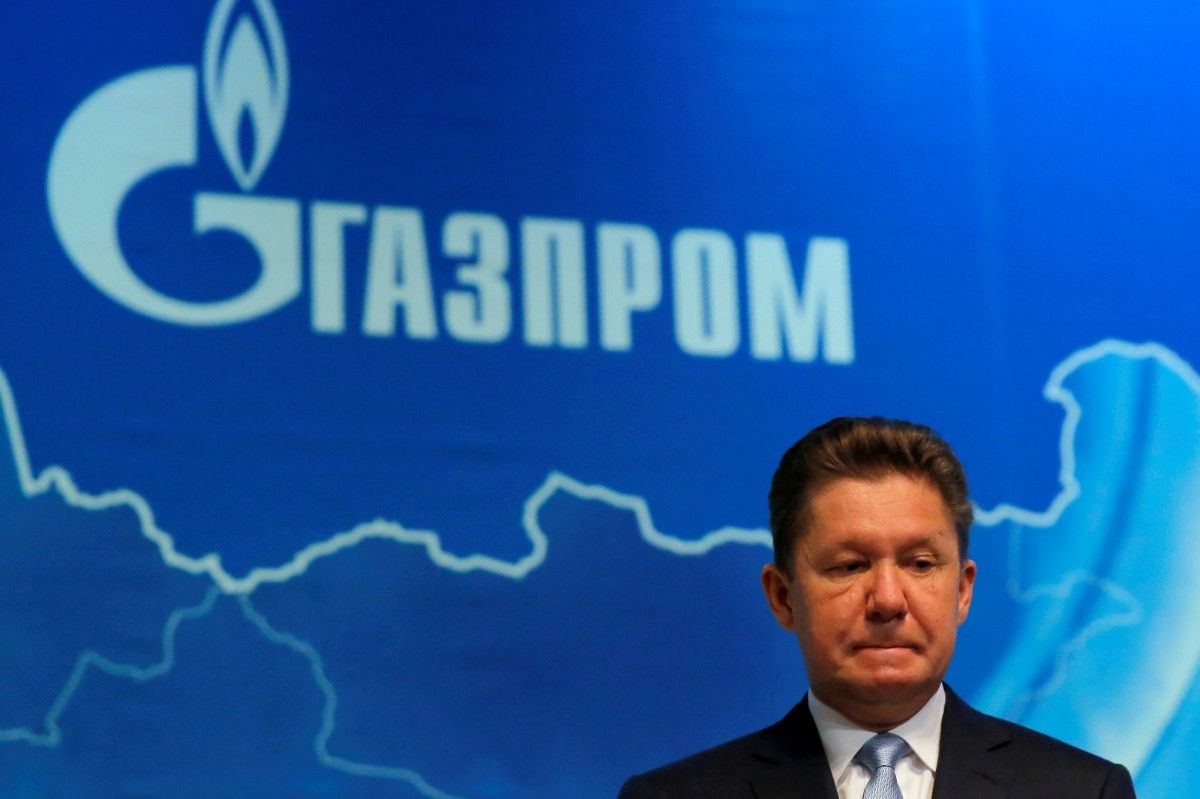
Yuriy Vitrenko, a Chief Commercial Officer at Naftogaz, wrote on Facebook that the arrest of these companies' shares would be another reason for European partners to think twice about the reliability of these routes and Gazprom itself.
"This will give grounds for Europe to once again reflect on how reliable these bypass pipelines are as the shares of their operator companies are arrested over the unwillingness of their owner to play by civilized rules and to implement the decision of international arbitration," he wrote.
Gazprom has not yet officially commented on the situation. At the same time, Nord Stream 2 AG confirmed the receipt of a warrant for the arrest of shares in connection with the recovery of Gazprom's debt. However, they assured that the procedure would not affect the Nord Stream-2 project.
The experts polled by UNIAN doubt the allegations by Nord Stream 2 AG, noting that if Naftogaz's actions don't halt the construction of the gas pipeline, they will at least delay it significantly, which will result in additional expenses for the Russian gas monopoly. And this is besides the fact that Gazprom will still have to pay off its debt to Ukraine, if not with actual money, then with pipes for gas pipelines or real estate in Europe.
There are still a lot of questions regarding the current situation, especially given the unprecedented nature of such litigation for Ukraine, but UNIAN has not yet been able to obtain any additional information from Naftogaz executives.
Government scandal
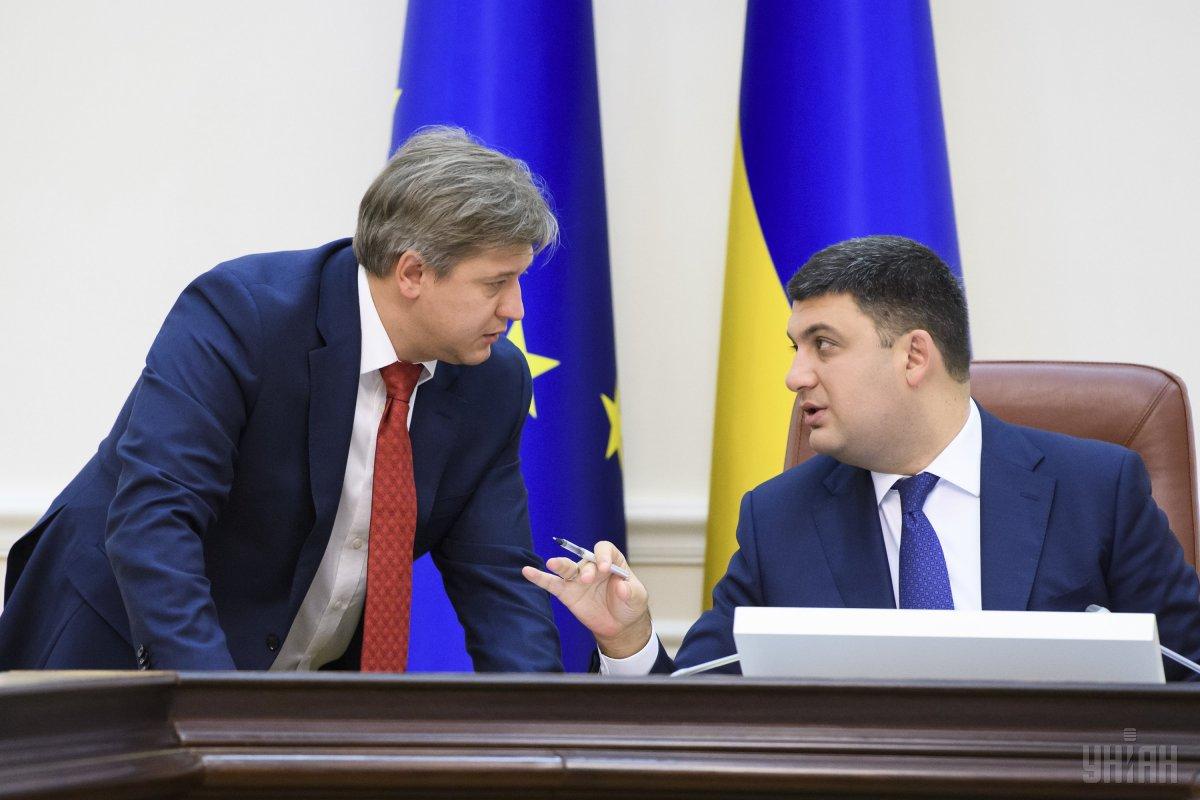
The scandal between Prime Minister Volodymyr Groysman and Finance Minister Oleksandr Danyliuk went international. Danyliuk appealed to the G7 Ambassadors with a letter claiming President Petro Poroshenko was trying to appoint someone close to himself a deputy finance minister, while Groysman refused to agree on the candidacy proposed by the minister.
"Regarding the letter, yes, I wrote it. I have exhausted the opportunities for a normal dialogue. I would like to see everything in our team to be resolved differently," said Danyliuk.
Meanwhile, Groysman claimed that Danyliuk had already apologized for the letter and admitted it had been a mistake. The premier said that the minister's reaction was unreasonably emotional, while writing such letter was absolutely unacceptable. The head of government also rightfully noted that such actions undermine international confidence in Ukraine.
"Nevertheless, this was not about Danyliuk writing to the European Commission, it was about this letter undermining confidence in Ukraine itself, which is absolutely unreasonable," Groysman said.
By the way, the post of a deputy minister of finance is not the only stumbling block for the officials. The apple of discord is also the Fiscal Service, which Groysman decided to reassign directly under the government control, bypassing the Ministry of Finance.
According to Danyliuk, such a decision is contrary to the law: "The decision was illegally adopted by the Cabinet, with violation of regulations. It was not published, and I think it will never be. This is not in line with the system of general government."
"I do not know what stands behind this, but the concentration of so many powers in one hands is wrong. First of all, we must think about the state," the minister added.
However, while submitting his appeal, Danyliuk hardly thought about the state, and even less so about ordinary Ukrainians, who could be most affected by the quarrel between two high-ranking officials. After all, our country's key creditor, the IMF, as it became known on Friday, has already sent a letter to the prime minister, warning that such actions could lead to a disruption of the next tranche's provision. The country's major economists warn that the situation in the economy is close to catastrophic. Without cooperation with the IMF, Ukraine is facing currency devaluation and default.
"The IMF program ends in March next year, while the government will run out of money even earlier. Therefore, the Ukrainian government has only a few months to negotiate with the IMF and receive a tranche. Without this, we will face a big risk of a sharp devaluation of the hryvnia and the government's failure to fulfill its external obligations, which is in fact a default," Dragon Capital's chief economist Olena Bilan said while presenting the results of a research on the possibility of a macroeconomic crisis in Ukraine.
By the way, returning to Danyliuk, we must admit that the man not only avoided lustration in 2014, although he had worked out and oversaw economic reforms under Viktor Yanukovych, he also took up a key position in the state and actually became the main negotiator with the IMF. During these years, Danyliuk managed to successfully conduct a number of successful operations and almost always got away with everything. That's despite the fact that there are questions about his possible tax evasion and allegedly undeclared real estate in UK.
It's very interesting to see what happens next. Danyliuk is not going to give up his post voluntarily, while there are no votes in the Rada for his resignation, apparently.
But it is also uncomfortable for Groysman to sit at the same government table with Danyliuk. After all, the minister embarrassed him, and the president, too, all over the world.
Financial instability
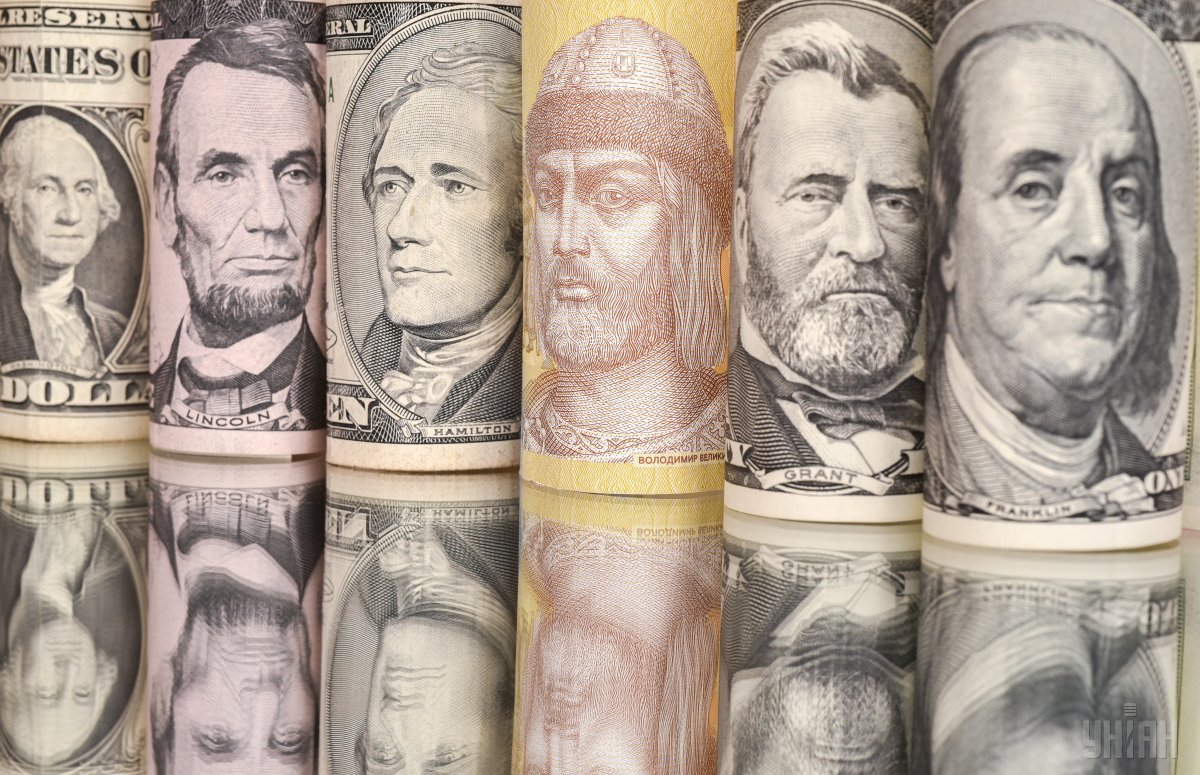
Macro-financial stability in Ukraine remains very fragile, that's according to the IMF's statement released last week. The Fund estimated the deficit of Ukraine's financing in 2018-2019 at $4.5 billion, which exceeds the assistance volume allocated by our international partners so far.
This year, Ukraine plans to receive macro-financial assistance from the EU in the amount of EUR 1 billion, the IMF tranche of $1.9 billion, as well as access to the market of foreign borrowings. This will allow Kyiv to survive relatively painlessly debt payments this year and in 2019. But this plan can be implemented only if the cooperation with the IMF continues.
It all seems to have been settled in financial cooperation with the EU - in the outgoing week the European Council approved an agreement with the European Parliament on a new package of macro-financial assistance for Ukraine in the amount of EUR 1 billion.
The sum will be delivered in tranches, the allocation of which must be preceded by Ukraine's fulfillment of certain conditions that will be set out in the memorandum of understanding between Ukraine and the European Commission.
So far, the main and quite logical condition for the allocation of EU funds to our country, in addition to fighting corruption, is the implementation of the program of cooperation with the IMF. But there are problems with that. For the IMF mission to arrive in Kyiv, Ukraine has to fulfill at least one of the two remaining requirements - to raise gas prices for the population. But Kyiv has so far struggled to do so. The decision was postponed until the end of the summer. Besides, the Rada is yet to adopt the law on the Anti-Corruption Court.
In short, cooperation with the IMF is vitally important. Indeed, with the support of the Fund, even entering the market of foreign borrowing would be easier. National Bank Governor Yakiv Smolii clearly stated that Ukraine could borrow money on the foreign borrowing market even without receiving the IMF tranche, but the cost of such borrowing will be higher than before and its volumes will be lower than those declared.
Moreover, such a scenario could lead to increased inflation, and the regulator will have to apply a more stringent policy to contain it.
"If inflationary pressure continues to increase, the National Bank will certainly strengthen monetary instruments to curb inflation. It will be introducing certain restrictions to deter possible outflow of capital," the NBU head noted.
NEURC's Vovk sacked
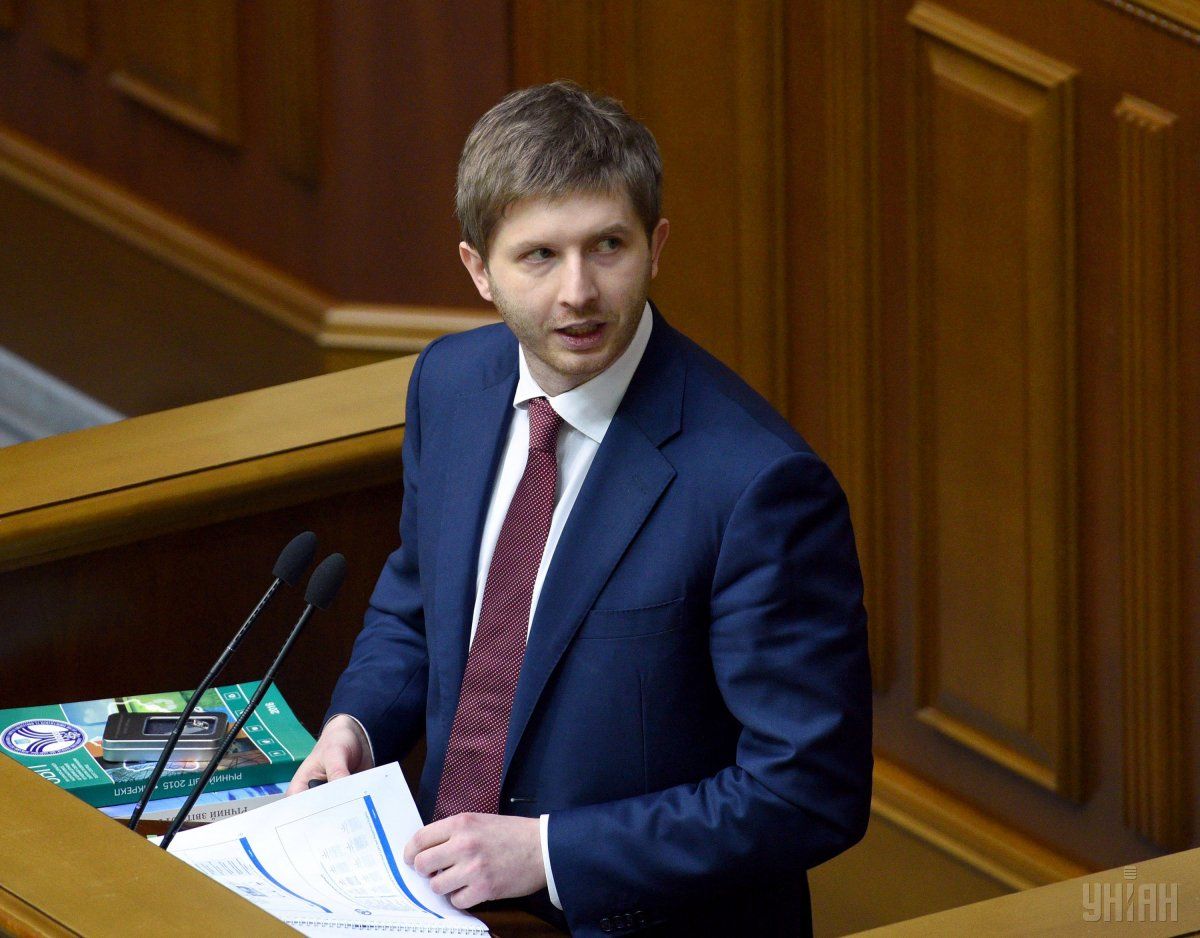
This week's landmark event was the dismissal by the Ukrainian president of the head of the National Energy and Utilities Regulation Commission, the controversial Dmytro Vovk, which was in line with the previously approved rotation plan. He, along with Ruslan Mashlyakivsky, remained the last acting members of the old composition of the regulator.
Dmytro Vovk was appointed to the post of an acting NEURC chief in late 2014. In June 2015, he became a full-fledged head of the energy regulator.
Under his leadership, the Commission adopted a number of scandalous decisions, which were market decisions in their essence and corresponded to Ukraine's international obligations under numerous agreements. However, the devil is in the details. It is because of some of them that the Commission's activities were criticized by expert community and market players, and also led to a complete loss of confidence in the agency.
During Vovk's rule, a notorious Rotterdam + formula was adopted, leading to a significant increase in electricity tariffs.
Also, the commission under his leadership implemented a plan to raise electricity tariffs for the population, and at the same time raised tariffs for industry, which did not allow tackling cross-subsidization in the electricity market.
During the Vovk's cadence, the NEURC tried to introduce a subscription fee for gas and also decided to introduce an incentive tariff formation for oblenergos [regional energy distribution companies], establishing rates of return on old and new assets at 12.5%. The rate on old assets was criticized by a number of experts.
Vovk is considered to be part of the president's entourage. After all, no wonder he has long worked in structures controlled by or closely related to Poroshenko. Therefore, practically no one had doubts that the former Commission head would in any case find his way through to the composition of the NEURC, even despite the fact that, according to the law, he does not have such right over the lack of relevant experience in the energy sector.
But recent events have shown that the new composition of the Commission, it seems, will do without him. Back in April, the selection commission, quite reluctantly, rejected his candidacy. Unwilling to leave the cozy chair of the energy regulator chief, Dmytro Vovk sued the commission's decision to select new members of the regulator, but did not attend the hearing, and now hearings were postponed indefinitely. The situation has changed.
At the same time, as of today, the court suspended the completion to select the remaining two NEURC members over the the claim of another candidate who was not allowed participating - Anton Hudachenko.
But it becomes obvious that the president finally decided to bet on new members in order to avoid possible negative feedback with pushing Mr Vovk through.
New blood for energy regulator
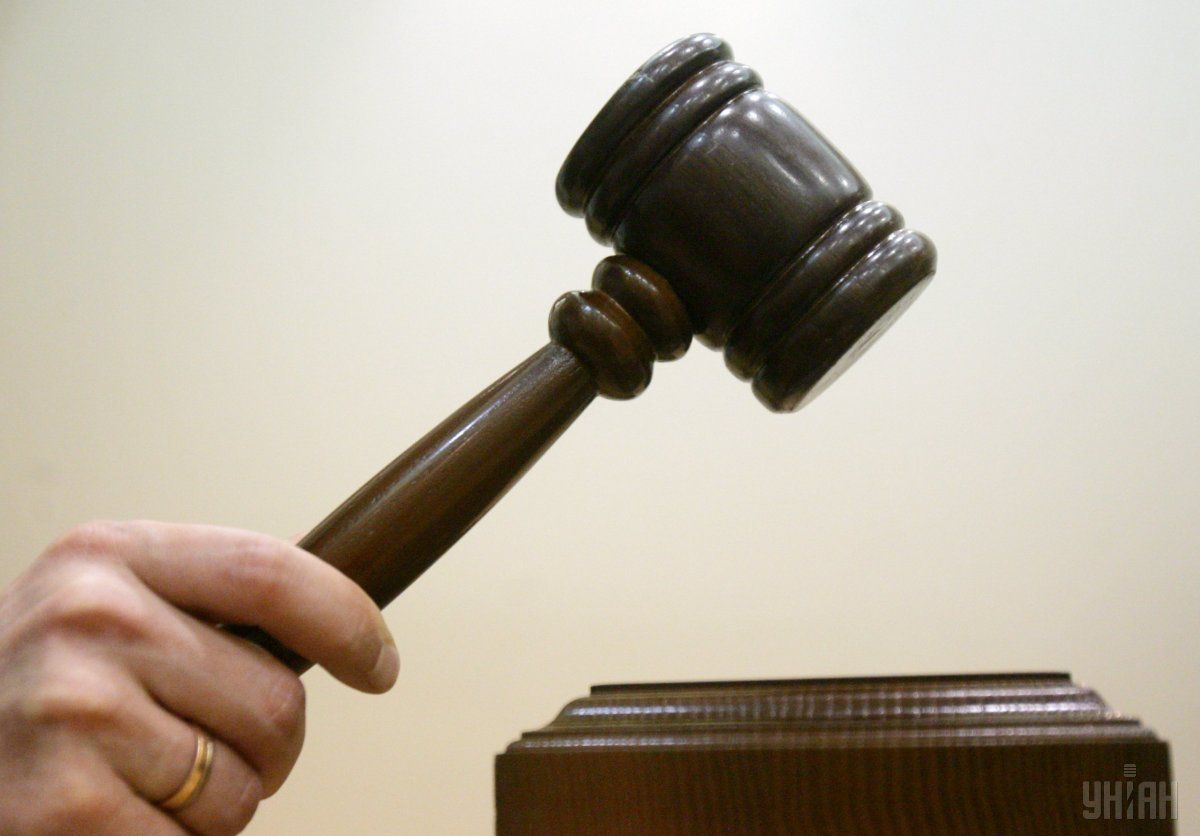
In the outgoing week, President Petro Poroshenko appointed five new members of the National Energy and Utilities Regulation Commission (NEURC), who for the first time in the history of Ukraine were selected in an open competition.
The new members are Oleksandr Farmahey (worked for Ukrhydroenergo), Dmytro Kovalenko (Ukrenergo, State Energy Efficiency), Yevhen Mahlyovanny (State Energy Efficiency), Olena Antonova (DTEK, U.S.-based AES), and Oksana Kryvenko (NEURC staff) who is already wooed to claim the chair of a NEURC head.
First of all, the president introduced new Commission members to the representatives of the IMF, World Bank and EBRD, stating that the NEURC activities should be transparent and clear both to citizens of Ukraine and international partners. Poroshenko stressed that full-fledged work of an effective regulator is also important for holding successful privatization.
"Despite the fact that the commission should select two more members, [the selection of] five members means there is already a body able to operate. I think that this is also very important and I am sure that the commission will work as a truly independent regulator, able to ensure the effective functioning of the market," Poroshenko said.
Indeed, the upgraded NEURC is facing the hardest task to restore confidence in the regulator. It does not really matter whether the new Commission sticks to the course of the previous composition or starts yet another round of drastic changes in the energy market. The actions of the regulator must be competent and professional, and each decision - public and fully justified.
Ihor Orel

